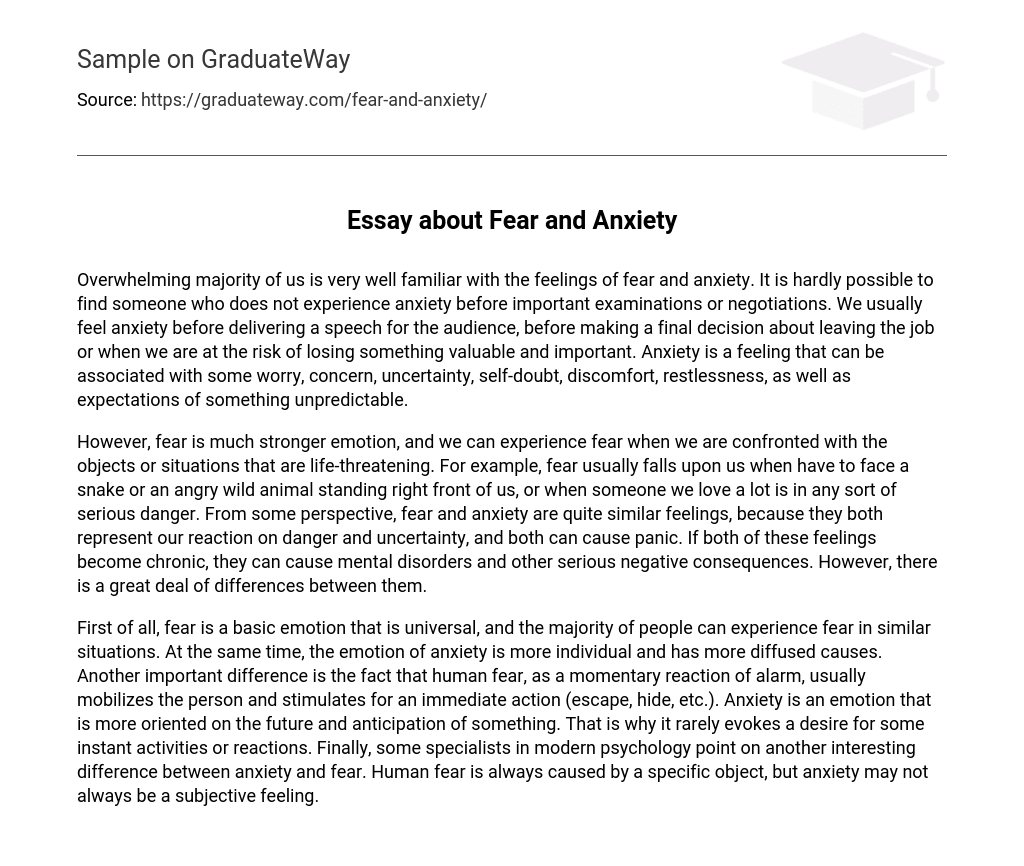Overwhelming majority of us is very well familiar with the feelings of fear and anxiety. It is hardly possible to find someone who does not experience anxiety before important examinations or negotiations. We usually feel anxiety before delivering a speech for the audience, before making a final decision about leaving the job or when we are at the risk of losing something valuable and important. Anxiety is a feeling that can be associated with some worry, concern, uncertainty, self-doubt, discomfort, restlessness, as well as expectations of something unpredictable.
However, fear is much stronger emotion, and we can experience fear when we are confronted with the objects or situations that are life-threatening. For example, fear usually falls upon us when have to face a snake or an angry wild animal standing right front of us, or when someone we love a lot is in any sort of serious danger. From some perspective, fear and anxiety are quite similar feelings, because they both represent our reaction on danger and uncertainty, and both can cause panic. If both of these feelings become chronic, they can cause mental disorders and other serious negative consequences. However, there is a great deal of differences between them.
First of all, fear is a basic emotion that is universal, and the majority of people can experience fear in similar situations. At the same time, the emotion of anxiety is more individual and has more diffused causes. Another important difference is the fact that human fear, as a momentary reaction of alarm, usually mobilizes the person and stimulates for an immediate action (escape, hide, etc.). Anxiety is an emotion that is more oriented on the future and anticipation of something. That is why it rarely evokes a desire for some instant activities or reactions. Finally, some specialists in modern psychology point on another interesting difference between anxiety and fear. Human fear is always caused by a specific object, but anxiety may not always be a subjective feeling.





